
Michelle de Kretser has won the fiction prize in the 2025 Prime Minister’s Literary Awards. It’s her second major prize this year for her ambitious, experimental novel Theory and Practice, which won the 2025 Stella Prize (and was shortlisted for the Miles Franklin).
De Kretser headed a winners’ list that confronts moments of crisis and care. The six books – across fiction, nonfiction, Australian history, poetry, young adult literature and children’s literature – reckon with histories of illness and inequality. They consider what it means to live according to one’s principles.
The other winners are Rick Morton’s coruscating investigation into the Robodebt scandal Mean Streak (nonfiction), Geraldine Fela’s Critical Care: Nurses on the frontline of Australia’s AIDS crisis (Australian history), David Brooks The Other Side of Daylight (poetry), Peter Carnavas’ illustrated space novel Leo and Ralph (children’s literature) and Krystal Sutherland’s The Invocations (young adult literature).
These books shed fresh light on the way our institutions, social relations and personal imaginations are shaped – and how they might be remade. Taken together, they map the pressures and possibilities of contemporary Australian life.
Each winner receives A$80,000, with the shortlisted writers receiving $5,000 each – all tax-free.
Mean Streak
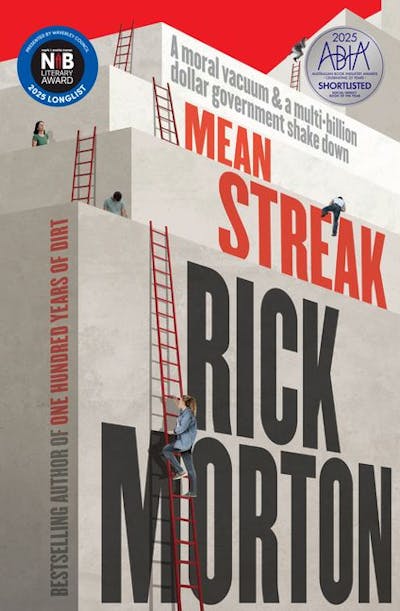
Rick Morton’s Mean Streak (Fourth Estate) investigates how institutional power causes personal suffering. He details how, over four painful years, a federal government scheme to recover fake welfare debts spiralled into one of Australia’s most significant public policy failures, resulting in physical suffering, financial ruination – and in some cases, death.
Linking the personal and the political, Morton dissects the bureaucratic, obfuscatory language that masked the scheme’s illegality. The task he sets himself is to understand how structural injustice is felt in the body. He conveys how such external pressures are rendered visible in moments of distress, despair and resistance.
The judges commended Mean Streak as an “excellent example of the fusion of thorough journalistic methods with an empathetic understanding of the humans at the heart of the story”. They were especially taken with Morton’s “single-minded determination” to turn a government’s wrongdoing into a profound, enthralling account of “what happens when we lose our collective conscience”.
Theory and Practice
“I succeeded in doing what I set out to do, which is to write a novel that doesn’t read like a novel; that reads like fact, like life captured on the wing,” said Michelle de Kretser earlier this year.
Moving between fictional, autofictional and essayistic modes, Theory and Practice (Text Publishing) is, as the judges note, “elegant, playful and razor sharp”.
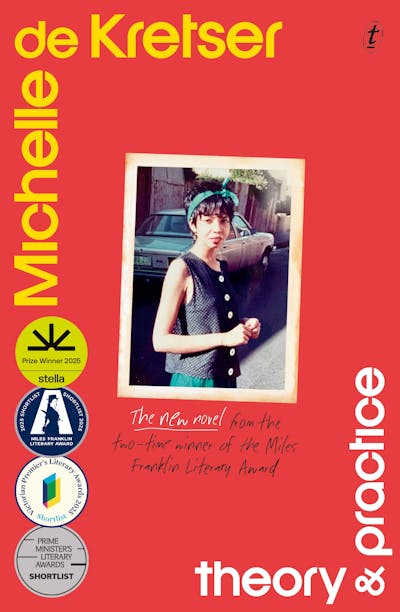
Set in 1980s St Kilda, among a community of university students, it features an unnamed protagonist who is writing a thesis about Virginia Woolf, while confronting difficult views found in Woolf’s diaries – and navigating an affair. The novel scrutinises the tensions between political idealism and the messy intricacies of existence. It tests “the limits of the novel as a form to investigate power in all its complexity,” said the judges.
Reviewing the book for The Conversation, writer and critic Eda Gunaydin praised it for taking “women’s art and interiority seriously”, concluding it is “something de Kretser is able to accomplish because she herself is a serious artist”.
Critical Care
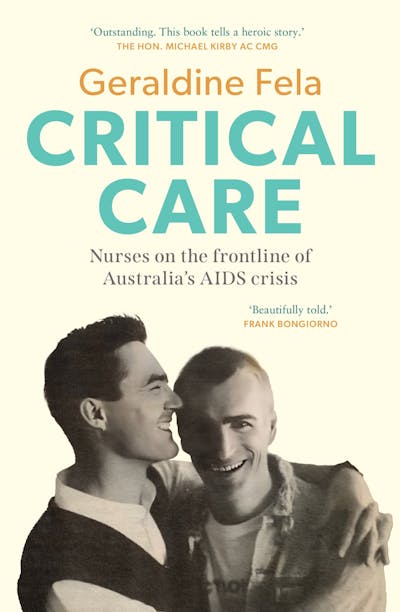
HIV and AIDS devastated communities in the 1980s and 1990s. Bringing together stories from across the country, Geraldine Fela demonstrates how, amid this crisis, nurses offered vital care to those living with and dying from the virus. They dealt with prejudice and negotiated complex family dynamics, while defending the rights of their patients.
Based on interviews with more than 30 nurses and many survivors of HIV, Critical Care (New South), in the words of the judges, “maps the human response to a public health emergency with compassion, insight, and an acute eye for telling detail”.
In a moment when “public health is a matter of urgent concern”, concluded the judges, “Critical Care is both an original and revealing history of Australia’s response to AIDS and a valuable source of guidance for the future”.
The Other Side of Daylight
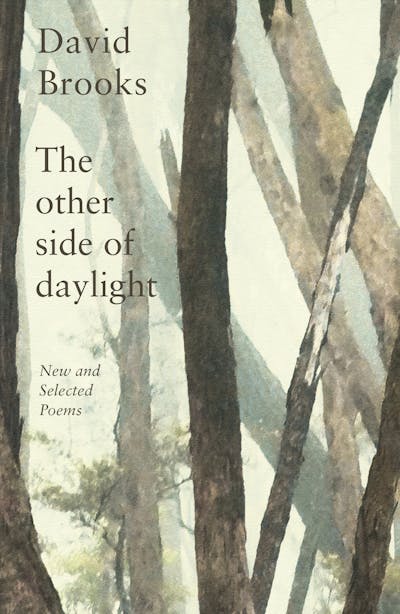
David Brooks’ The Other Side of Daylight (UQP) comprises selections from Brooks’ five previous collections and a treasury of 48 new poems.
In her review for The Conversation, Ann Vickery observed Brooks’ poetry is “deeply personal, even when he is reflecting on broader historical or global patterns”.
The Other Side of Daylight develops Brooks’ longstanding preoccupation with ideas of justice, and human and non-human animal relations. Many of his poems, Vickey notes, “speak not only of animals’ sentience, but an empathetic community that contrasts with the violence and disregard humans show towards their environment and each other”.
The collection’s lyrical, finely wrought observations of rural life in the Blue Mountains shine with what the judges called “a passionate conviction for animal welfare and environmental conservation”.
Leo and Ralph
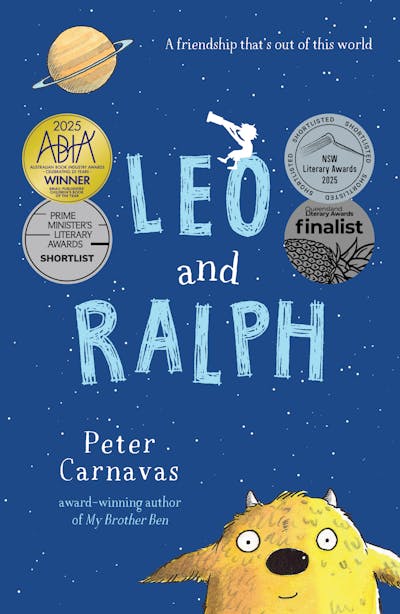
Combining emotional depth with striking monochrome visuals, Peter Carnavas’ Leo and Ralph (UQP) centres on the imaginative world of a young boy finding his place in the world.
Shy and socially uncertain, Leo occasionally struggles to express himself in the company of others. In the absence of kindred spirits, he invents Ralph, an imaginary companion who hails from outer space. Ralph’s presence provides Leo with support and guidance as he grows up and gains agency.
Carnavas “shares his kind and perceptive insights about young people who may not quite fit within the norm”, said the judges.
They emphasised Carnavas’s empathetic, imaginative approach and his ability to advocate for “the value of being different in a satisfying, age-appropriate way”.
The Invocations
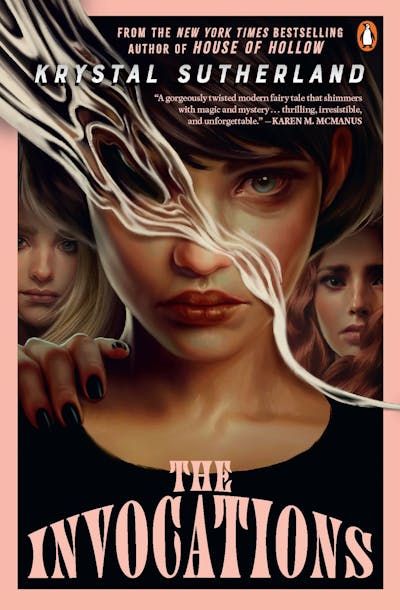
Krystal Sutherland won the young adult literature prize for The Invocations (Penguin). The judges called it “a work from a novelist at the height of her powers”.
A thrilling, atmospheric tale of witchcraft, grief and resilience, The Invocations follows three young women who join forces in an attempt to confront a series of figurative and literal demons.
As the judges attest, it “explores grief, control, found family and agency through an original lore of witchcraft, spells and curses”.
Despite being subject to isolation and traumatic experiences, her characters show they are “willing to fight the forces that would seek to control their minds, bodies and futures”.
This article is republished from The Conversation, a nonprofit, independent news organization bringing you facts and trustworthy analysis to help you make sense of our complex world. It was written by: Alexander Howard, University of Sydney
Read more:
- 40 years ago, the first AIDS movies forced Americans to confront a disease they didn’t want to see
- Robodebt compensation is a win for victims, but now we may never know the full story
- Government settles Robodebt class action appeal for 5 million in compensation
Alexander Howard does not work for, consult, own shares in or receive funding from any company or organisation that would benefit from this article, and has disclosed no relevant affiliations beyond their academic appointment.


 The Conversation
The Conversation
 Washington Blade
Washington Blade Los Angeles Times Arts
Los Angeles Times Arts The Spectator
The Spectator Billboard
Billboard Motosport F1 Mercedes
Motosport F1 Mercedes AmoMama
AmoMama The Daily Beast
The Daily Beast The Hill Video
The Hill Video AlterNet
AlterNet